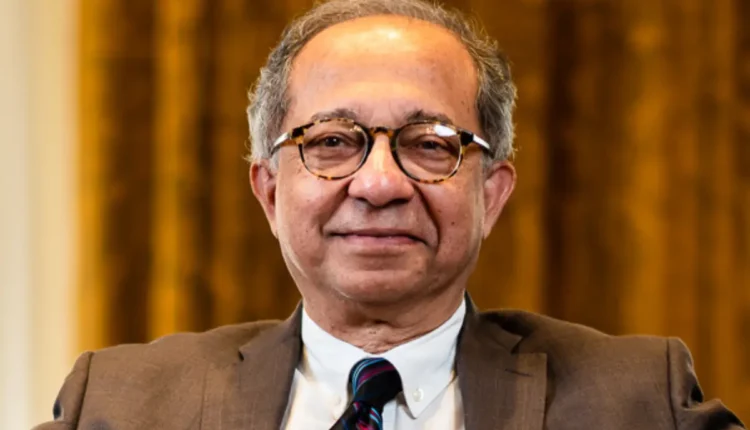Kaushik Basu, a luminary in the realm of economics, has sculpted an extraordinary legacy through his multifaceted career. From serving as the Chief Economist of the World Bank to being the Chief Economic Adviser to the Government of India, Basu’s journey is one of unparalleled dedication and intellectual prowess.
Early Life and Education of Kaushik Basu
Born on January 9, 1952, in Kolkata, India, Kaushik Basu’s journey into the world of economics was a fascinating odyssey. Raised in Kolkata, he attended St. Xavier’s Collegiate School before embarking on his academic pursuits. In 1969, faced with the choice of studying physics or nothing, he chose economics, setting the stage for a transformative academic journey.
Basu pursued his undergraduate studies in Economics at St. Stephen’s College, Delhi, and later earned an MSc in economics from the University of London in 1974.
What was supposed to be a transition to law took an unexpected turn as he became enamored with logic and deductive reasoning, influenced by the work of Amartya Sen. Under Sen’s mentorship, Basu completed his PhD at the London School of Economics, solidifying his foundation in economic thought.
His intellectual curiosity extended beyond traditional economics; during his tenure as the Chief Economist of the World Bank, Basu published a paper presenting a new proof of the Pythagorean theorem, showcasing his childhood interest in Euclidean geometry.
Personal Life and Beliefs
Kaushik Basu‘s personal life is anchored by his marriage to Alaka Malwade Basu and their two children, Karna and Diksha. Alaka, a professor at Cornell’s Department of Development Sociology, adds another dimension to the Basu household’s intellectual tapestry.
Basu’s beliefs resonate with a nuanced understanding of economic principles. He emphasizes the role of moral qualities—honesty, fairness, and integrity—in fostering economic flourishing. In his book, “Beyond the Invisible Hand,” he delves into the importance of these qualities in personal and societal development.
Economic and Political Views
Kaushik Basu’s writings reflect a deep appreciation for Adam Smith’s invisible hand theory, emphasizing the need for moral qualities to complement market forces. While supporting Marx’s vision of a society based on need and ability, Basu critiques historical attempts, emphasizing the necessity of a scientific roadmap for societal transformation.
Views on Bribery
Kaushik Basu’s perspective on bribery, particularly ‘Harassment Bribes,’ challenges conventional wisdom. In his paper, he advocates for treating the act of giving certain bribes as legal, highlighting the complexities of ethical considerations in different contexts. This viewpoint has sparked extensive public debate.
Career
Kaushik Basu’s illustrious career includes roles as a visiting professor at prestigious institutions like MIT, Harvard, and the London School of Economics. Before his tenure as the World Bank’s Chief Economist, he served as the Chief Economic Adviser to India’s Ministry of Finance. In 1992, he founded the Centre for Development Economics at the Delhi School of Economics.
Basu’s foray into government in 2009 marked a transformative phase, bringing a unique perspective to policy formulation. He is also a columnist, author, and editor, contributing significantly to economic literature and public discourse.
Awards and Honors
Kaushik Basu’s contributions have earned him numerous accolades, including the prestigious Alexander von Humboldt Foundation Research Award in 2021 and the Padma Bhushan from the Government of India in 2008. His presidency of the Human Development and Capabilities Association speaks volumes about his commitment to high-quality research in human development.
Also Read : Malaysia Revamps Residency Program

